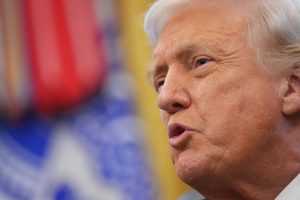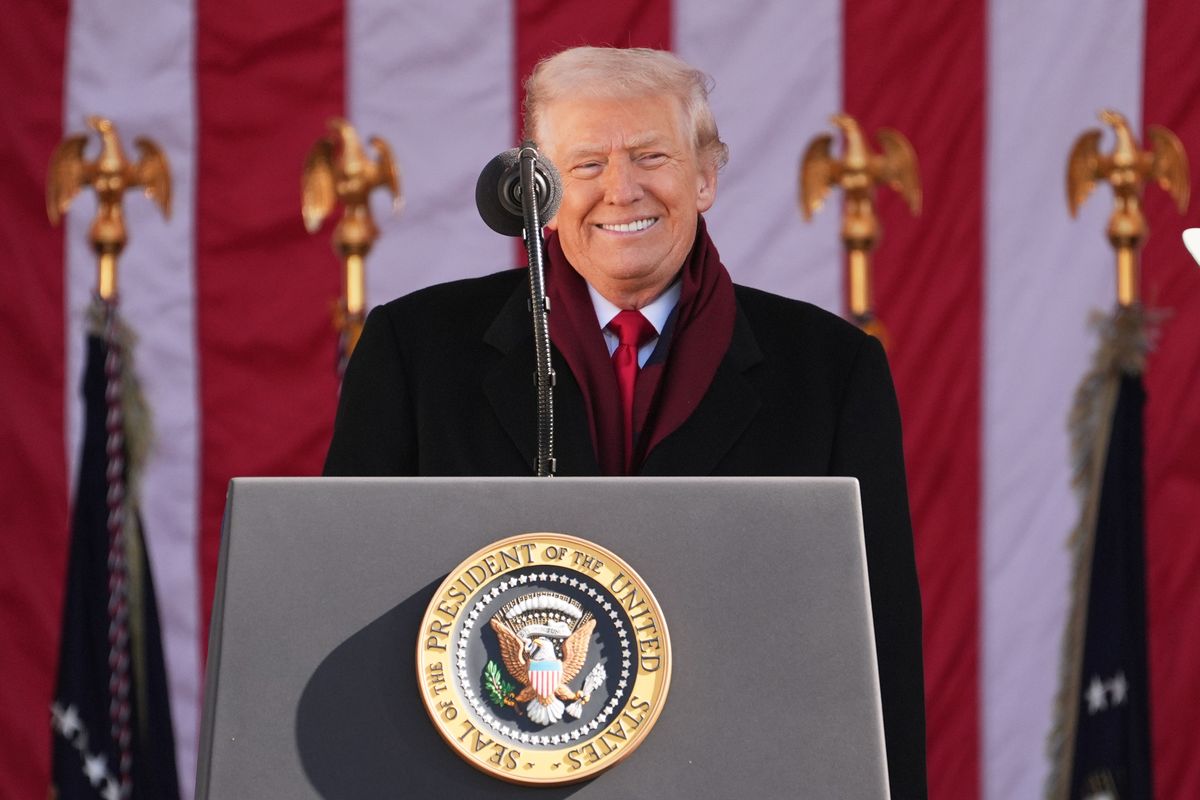WASHINGTON (AP) — President Donald Trump boasts that his tariffs protect American industries, lure factories to the United States, raise money for the federal government and give him diplomatic leverage.
Now, he’s claiming they can finance a windfall for American families, too: He’s promising a generous tariff dividend.
The president proposed the idea on his Truth Social media platform Sunday, five days after his Republican Party lost elections in Virginia, New Jersey and elsewhere largely because of voter discontent with his economic stewardship — specifically, the high cost of living.
The tariffs are bringing in so much money, the president posted, that “a dividend of at least $2000 a person (not including high income people!) will be paid to everyone.’’
Budget experts scoffed at the idea, which conjured memories of the Trump administration’s short-lived plan for DOGE dividend checks financed by billionaire Elon Musk’s federal budget cuts.
“The numbers just don’t check out,″ said Erica York, vice president of federal tax policy at the nonpartisan Tax Foundation.
Details are scarce, including what the income limits would be and whether payments would go to children.
Even Trump’s treasury secretary, Scott Bessent, sounded a bit blindsided by the audacious dividend plan. Appearing Sunday on ABC’s “This Week,” Bessent said he hadn’t discussed the dividend with the president and suggested that it might not mean that Americans would get a check from the government. Instead, Bessent said, the rebate might take the form of tax cuts.
The tariffs are certainly raising money — $195 billion in the budget year that ended Sept. 30, up 153% from $77 billion in fiscal 2024. But they still account for less than 4% of federal revenue and have done little to dent the federal budget deficit — a staggering $1.8 trillion in fiscal 2025.
Budget wonks say Trump’s dividend math doesn’t work.
John Ricco, an analyst with the Budget Lab at Yale University, reckons that Trump’s tariffs will bring in $200 billion to $300 billion a year in revenue. But a $2,000 dividend — if it went to all Americans, including children — would cost $600 billion. “It’s clear that the revenue coming in would not be adequate,” he said.
Ricco also noted that Trump couldn’t just pay the dividends on his own. They would require legislation from Congress.
Moreover, the centerpiece of Trump’s protectionist trade policies — double-digit taxes on imports from almost every country in the world — may not survive a legal challenge that has reached the U.S. Supreme Court.
In a hearing last week, the justices sounded skeptical about the Trump administration’s assertion of sweeping power to declare national emergencies to justify the tariffs. Trump has bypassed Congress, which has authority under the Constitution to levy taxes, including tariffs.
If the court strikes down the tariffs, the Trump administration may be refunding money to the importers who paid them, not sending dividend checks to American families. (Trump could find other ways to impose tariffs, even if he loses at the Supreme Court; but it could be cumbersome and time-consuming.)
Mainstream economists and budget analysts note that tariffs are paid by U.S. importers who then generally try to pass along the cost to their customers through higher prices.
The dividend plan “misses the mark,” the Tax Foundation’s York said. ”If the goal is relief for Americans, just get rid of the tariffs.’’
By PAUL WISEMAN
AP Economics Writer


